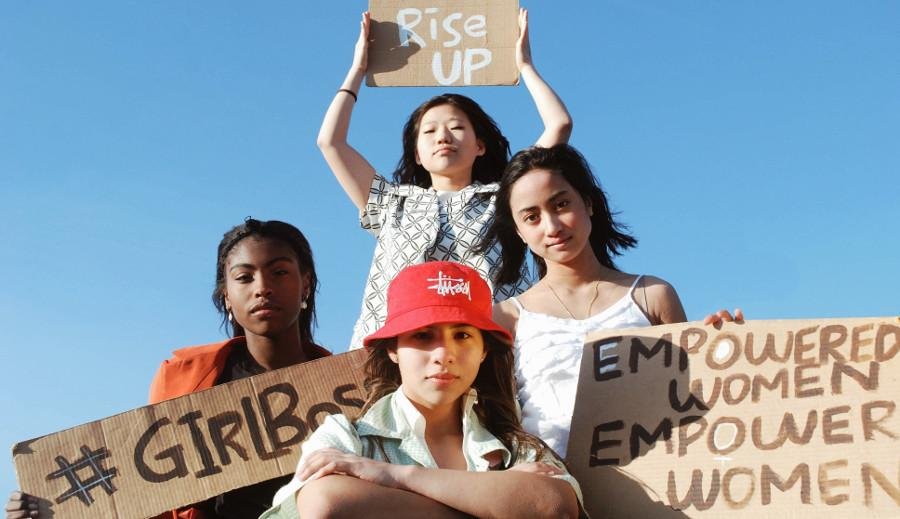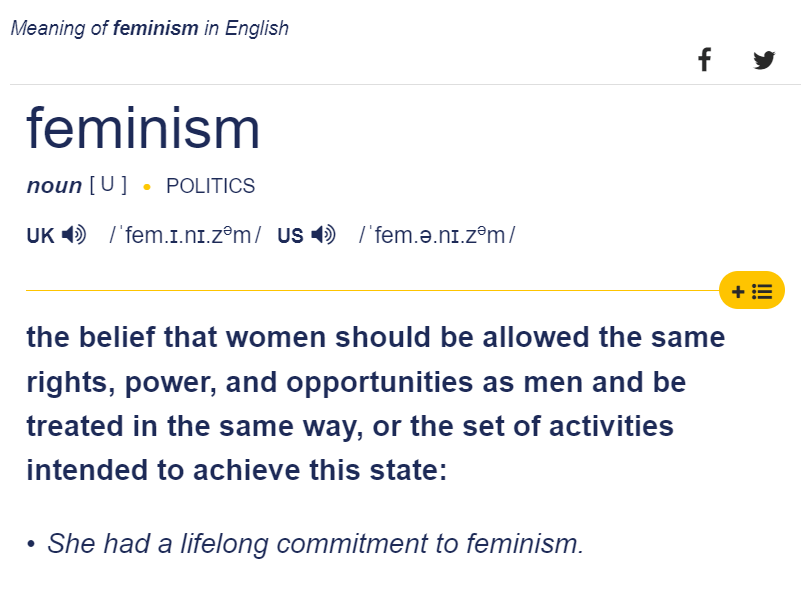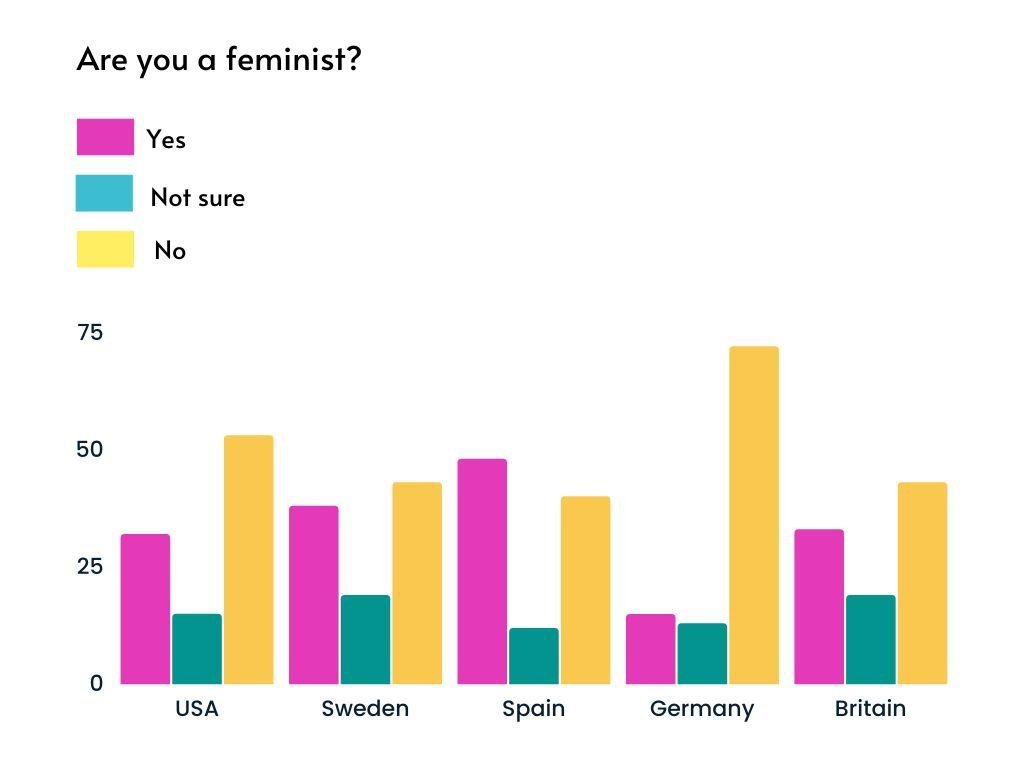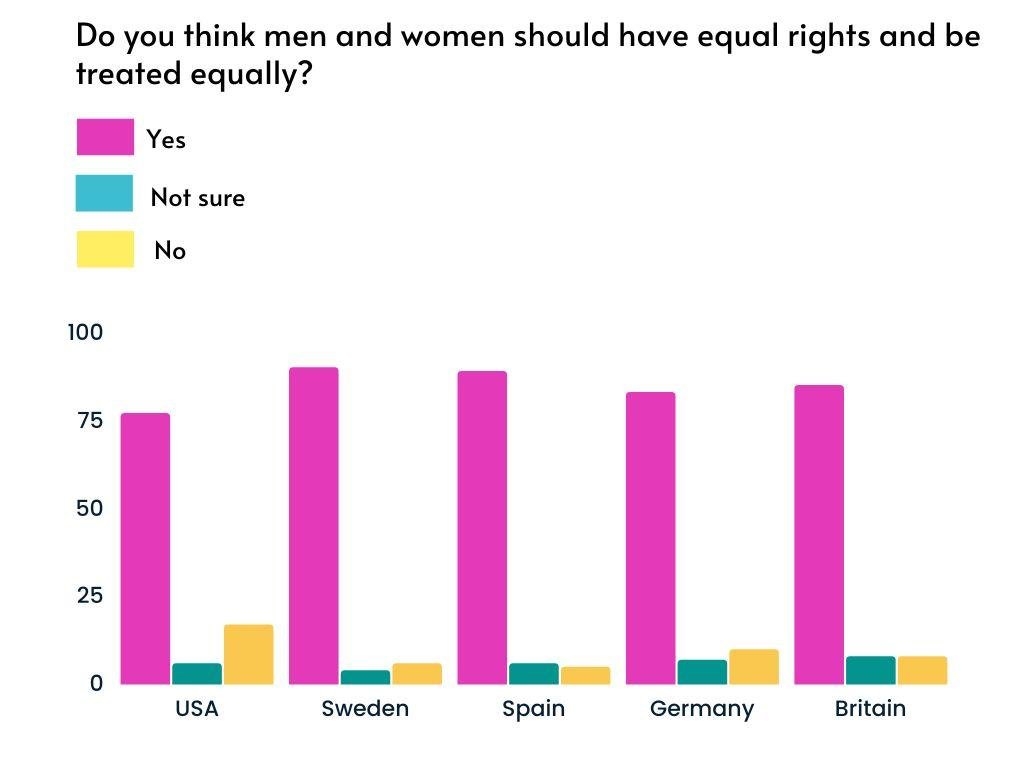In 2023, people don’t know what feminism is

The year is 2023. The suffragettes, women’s liberation and #MeToo have been, gone and made their mark in history, at least in the Global North. However despite these movements it seems the majority of people in western Europe and the US don’t understand what the concept of feminism is.
At least that’s what a recent survey by pollsters YouGov has found. Respondents in seven different countries were randomly asked one of three questions to determine whether or not they identify as feminist. When asked directly “are you a feminist?”, less than half said that they are.
Yet when another group of respondents was asked the same question in conjunction with the definition of feminism (that men and women should have equal rights and status in society), between 45% and 77% of respondents in that group said they are feminists.
We have to wonder what the respondents believe the term “feminism” actually means. And moreover, how its meaning has become so widely misunderstood.

Most people say they are not feminists
Out of the countries polled, respondents in Germany are least likely to say they are feminists when asked without the definition (only 15%), while 72% said they are not feminists. Spain was the only country where more people said they identify as feminists than not, without being told the definition.

Most respondents say they are feminists when they understand what this means
When respondents were asked whether they identify as feminists, which is the belief that men and women should have equal rights and be treated equally, the figures reversed dramatically. All countries had a majority of respondents saying they are feminists, with Spain having the highest proportion at 72%.

There is majority agreement that men and women should have equal rights
A third group was asked whether they believe men and women should have equal rights in society. The vast majority said yes, with the highest percentages belonging to Italy (not featured in the graph, 91%) and Sweden (90%).
However note that in the USA, 17% of respondents said they did not agree with this statement. Only Denmark scored higher with this response (not featured in graph, 19%), both significantly higher than the next country in line, Germany, with 10% of respondents saying they disagreed that men and women should have equal rights.

Our take on all this? Given the switch in respondents’ answers, the word “feminism” appears to mean something very different to its dictionary definition to a majority of people in the countries surveyed. And while language changes over time, here the semantics are important because a movement aiming to achieve equality is significantly weaker if the words that describe it are not understood. This article by the CEO of Everyday Feminism explains what the most common myths around feminism are, who is promoting them and why.

3 thoughts on “In 2023, people don’t know what feminism is”